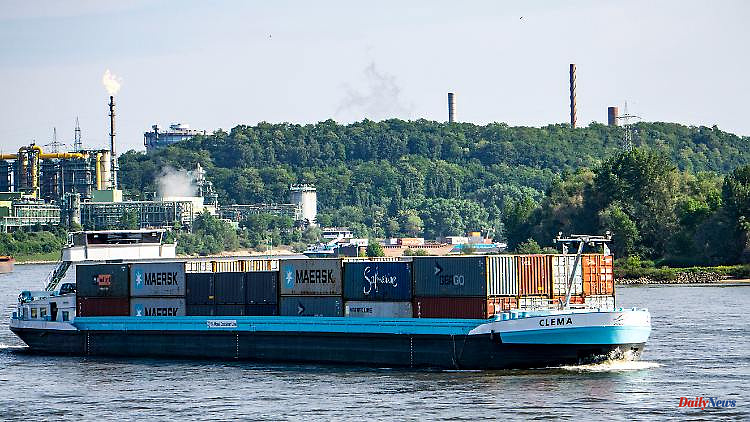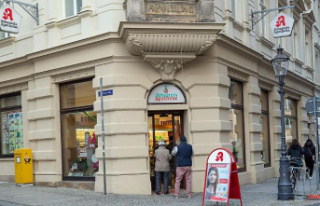German exports are increasing by 4.4 percent - and thus much more than experts had expected. However, it was already clear in advance that business with Russia would continue to suffer due to sanctions. However, the DIHK warns that the success is currently only achieved due to extreme price increases.
In April, German exports recovered surprisingly strongly from the shock after the outbreak of war in Ukraine. They grew due to good business with the USA and the euro countries by 4.4 percent compared to the previous month to 126.4 billion euros, as reported by the Federal Statistical Office. Economists surveyed by the Reuters news agency had only expected an increase of 1.5 percent after there had been a seasonally and calendar-adjusted decline of 3.0 percent in March.
Imports also increased far more than expected this time at 3.1 percent, after a plus of 3.2 percent in the previous month. Exports to Russia fell by 10 percent in April to just 800 million euros because of sanctions in response to the war against Ukraine that began on February 24 and other measures to limit exports. In March they had even collapsed by more than 60 percent.
This time, imports from Russia fell by 16.4 percent to 3.7 billion euros. Germany mainly imports oil and natural gas from there. "So the sanctions are reflected in hard numbers," said the chief economist at VP Bank, Thomas Gitzel. "The trade restrictions with Russia are not just a toothless tiger, they are very obvious."
German exports to the EU member states increased by 4.2 percent in April, those to the euro countries by as much as 5.9 percent. Exports to the main customer, the United States, increased by 7.7 percent, while those to China fell by 4.5 percent. The People's Republic is currently fighting a new corona wave with rigid measures, which is also hindering global trade. "For the next few months it will be important that exports do not get caught in the stranglehold of supply chains," said the chief economist at Hauck Aufhäuser Lampe Privatbank AG, Alexander Krüger, with a view to China, the most important supplier to the German economy.
According to a survey by the IFO Institute, the mood among German exporters has brightened in May for the second month in a row. "But German industry remains cautious," said IFO President Clemens Fuest. "Logistics issues continue to be a major burden." There are therefore no signs of a great dynamic in exports at the moment.
The Association of German Chambers of Industry and Commerce (DIHK) expects exports to stagnate this year. Volker Treier, DIHK head of foreign trade said: "Unfortunately, the export increase in April is not a trend reversal. It is solely due to price increases in exports. In view of a price increase of 16 percent compared to the same month last year, exports have actually fallen in real terms. The export motor is crunching enormously. German industry is groaning under the soaring prices for energy, raw materials and preliminary products that cannot be passed on to customers."












